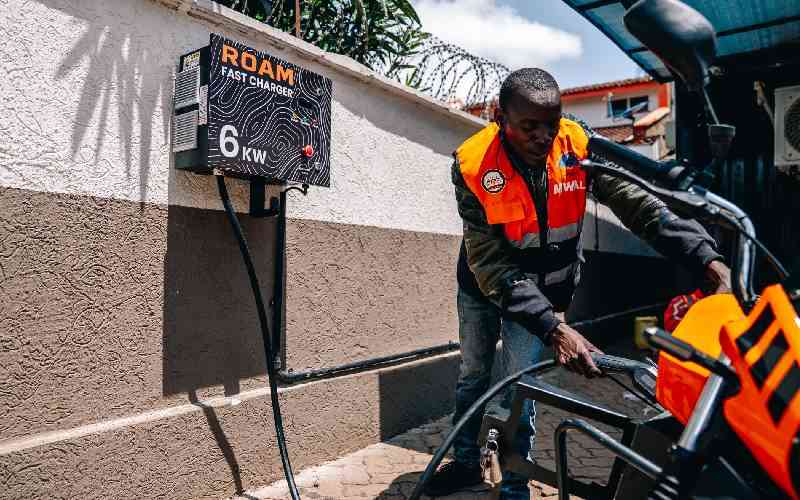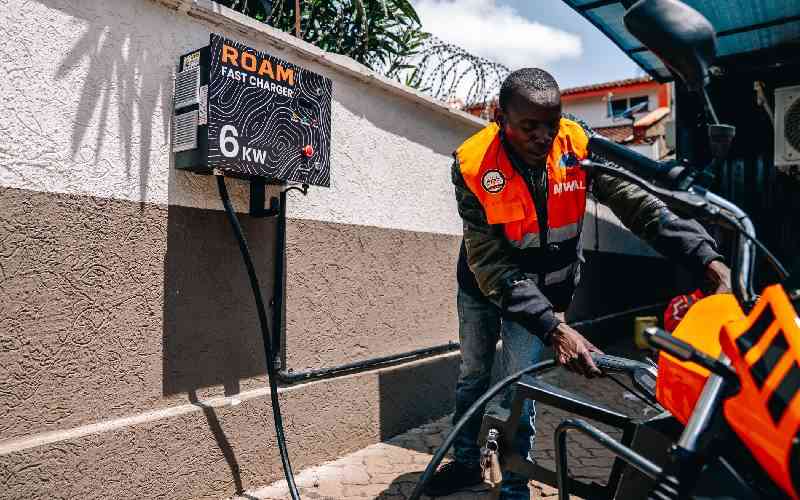
An electric mobility company, Roam,has launched Kenya’s first fast-charging station for light electric vehicles (LEVs) including Tuktuks and motorbikes.
The self-service charging station marks the start of a nationwide rollout of high-speed charging infrastructure by the company.
The Roam Point introduces a charging system with a range of 10 to 20 kilometers in under five minutes, operating on a self-service model.
The company said the service allows users to charge on a self-service basis and make payments via SMS, Mpesa (USSD) on a mobile phone or the Roam App, making it real-time and accessible 24 hours a day.
Electric vehicle operators have often faced long wait times, limited operating hours and congestion at swapping and charging stations.
These are some of the challenges that this charging point aims to tackle by offering fast, self-service charging while also solving compatibility issues.
Equipped with Type 6 connectors and open-charge standards, the station works with all light electric vehicles built to the same specifications, giving riders a reliable and universal charging option.
These Roam Points are the first credible solution to scaling up the use of electric vehicles across Kenya through the adoption of common standards, international certification and interoperability.
“This service builds on battery ownership model, which gives riders full control of their batteries, allowing them to 'ride everywhere and charge anywhere,” said Habib Lukaya, Roam’s Country Manager.
He added: “It adds flexibility to how riders stay charged. Whether it’s home charging, hub rental, or fast charging on the go, we want to empower our riders with the choice that fits their needs.”
Charging during the day is slightly more expensive than at night. At night, the rate is Sh25 per kWh, while daytime charging is Sh40 per kWh. This difference, the company said comes from the e-mobility tariffs set by Kenya Power.
In January 2018, Kenya Power introduced Time of Use (ToU) tariff, which offers discounted night tariffs to small commercial, commercial-industrial and electric vehicle (EV) users.
This tariff provides a 50 per cent discount for electricity consumed during off-peak hours, which are 10 pm to 6 am on weekdays, and from midnight to 8am on Saturdays, as well as all day Sunday and public holidays.
Stay informed. Subscribe to our newsletter
"Our goal is to drive charging adoption and make the experience truly beneficial for riders. That’s why we’ve ensured our charging is cheaper than home charging; we want to give back to the community and support the drivers who rely on us. With Roam, charging is not only more affordable but also faster than home charging," said Lukaya.
Boost to electric mobility as Roam launches first universal fast-charging station for light electric vehicles
